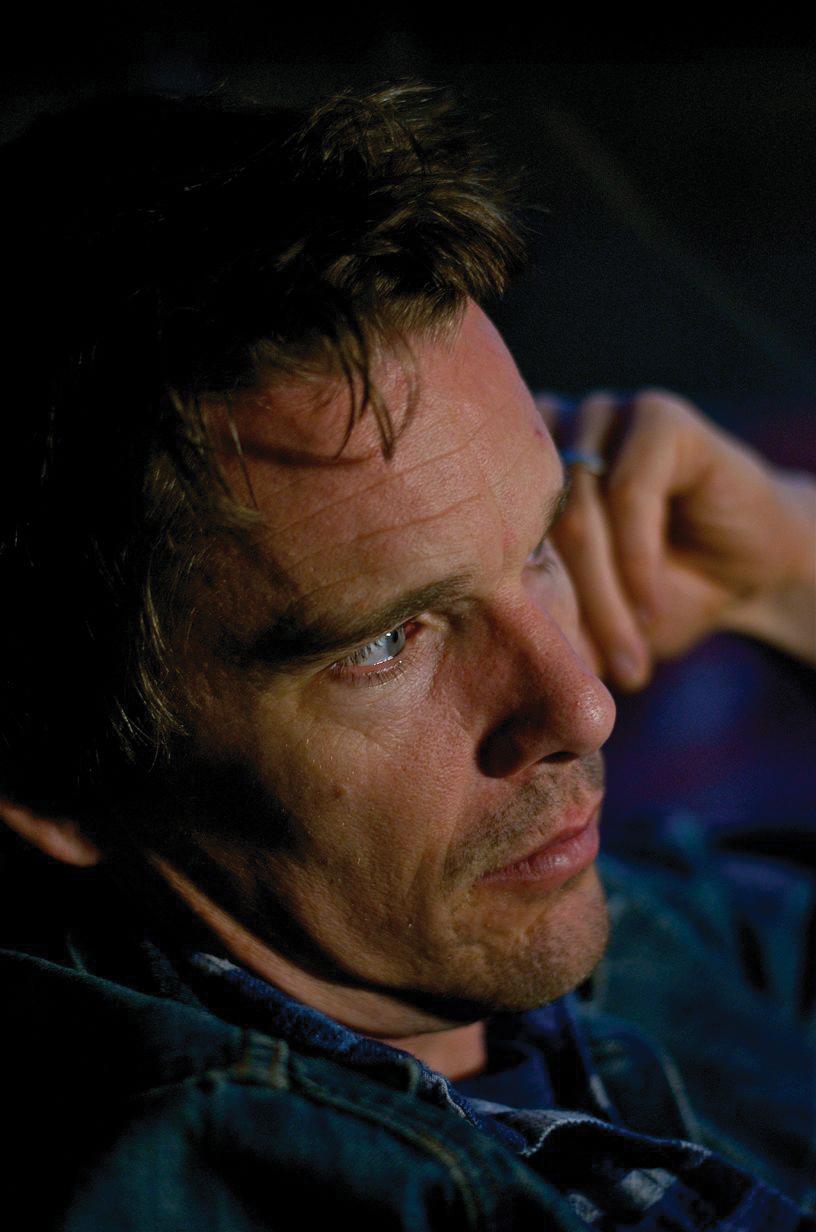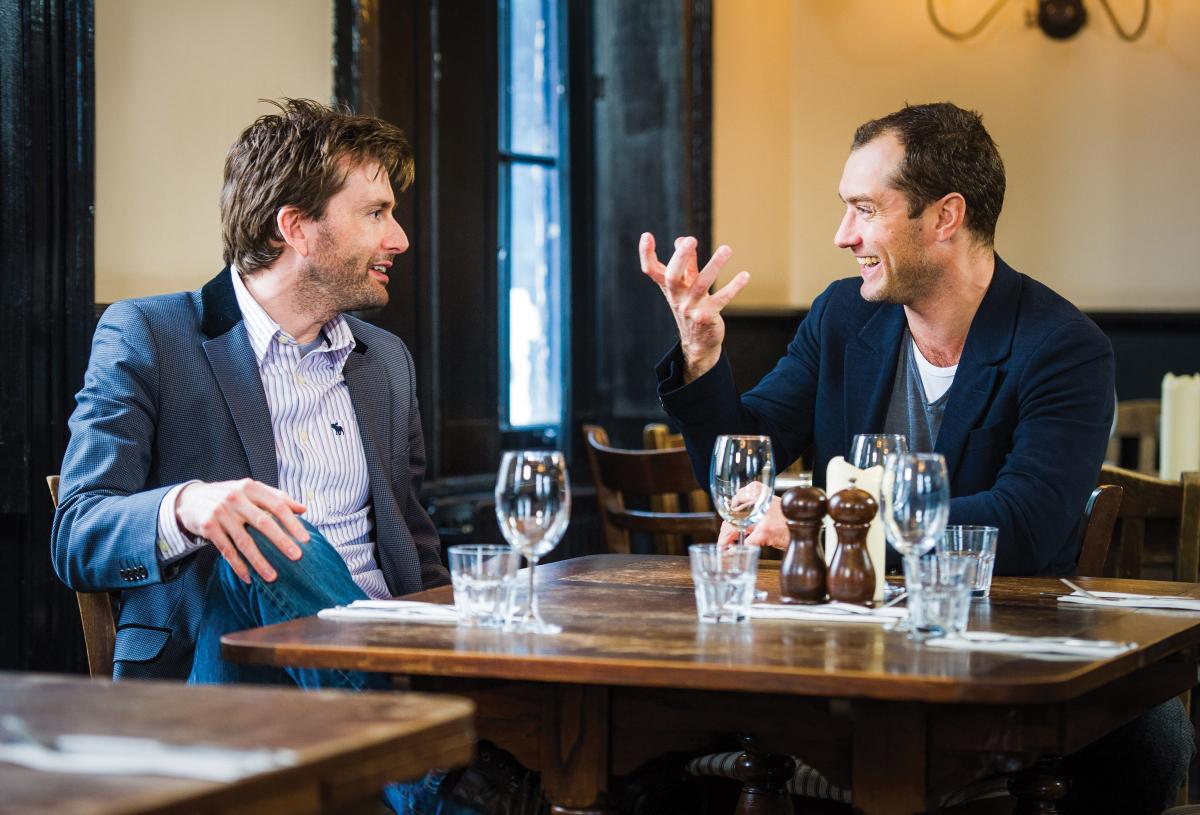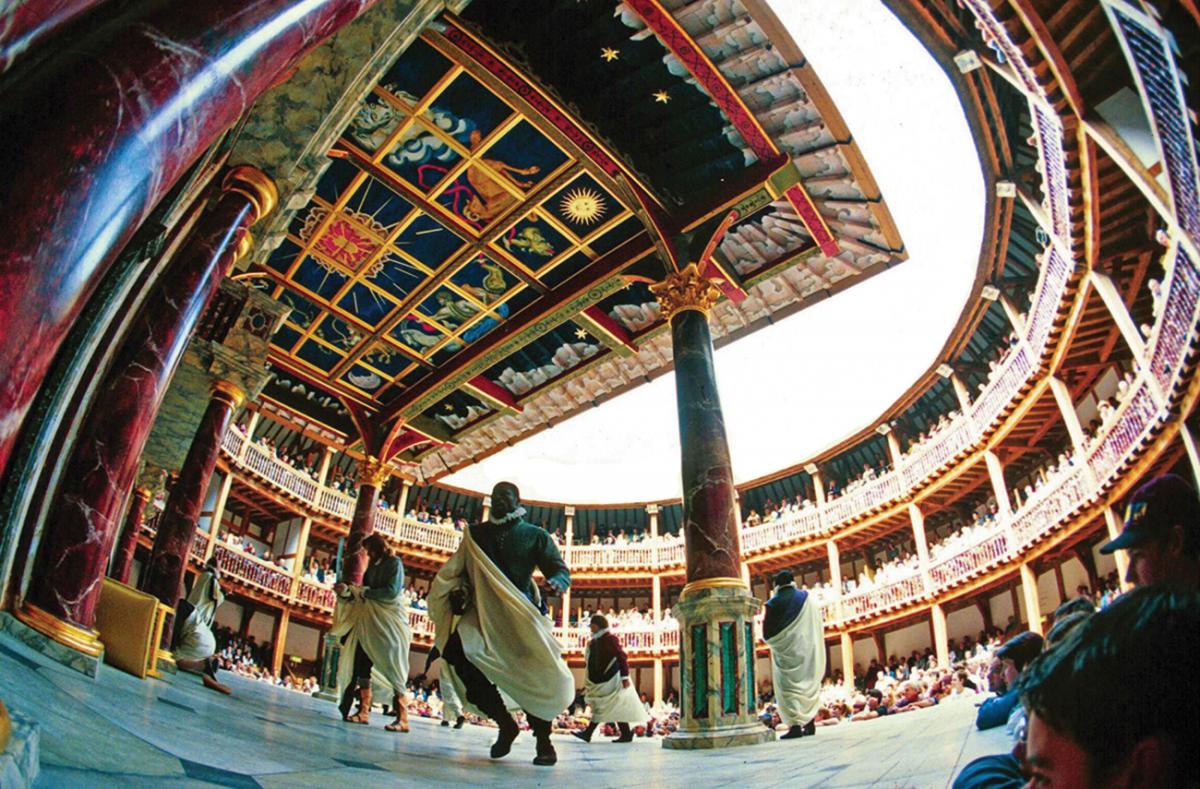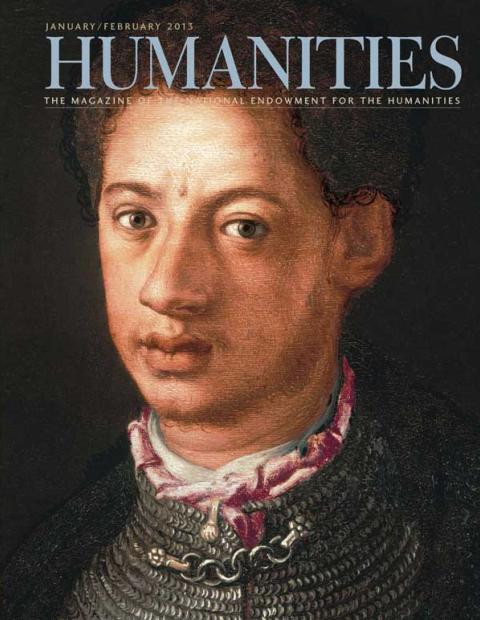There ought to be a channel called BBC America Classic. Just in time for Shakespeare’s birthday this April, it could broadcast a marathon called “The Bard on the Beeb.” I picture them running the storied Hamlet at Elsinore, filmed on location at Kronborg Castle in 1964 and featuring Christopher Plummer as Hamlet, Robert Shaw as Claudius, a young Michael Caine as Horatio, and an even younger Donald Sutherland as Fortinbras. They could also show a 1963 As You Like It, starring a twenty-six-year-old Vanessa Redgrave as Rosalind. And, for the first time in decades, out of the vault could come Peter Hall’s 1959 Midsummer Night’s Dream, with its miracle cast of Redgrave as Helena, Albert Finney as Lysander, Charles Laughton as Bottom, Ian Holm as Puck and, if only for an eyeblink, Diana Rigg.
Alas, BBC America Classic doesn’t exist. Auntie Beeb has historically locked her crown jewels away . . . until now. This winter, the six-part series Shakespeare Uncovered (a coproduction of BBC and WNET) will vouchsafe just a taste of these treasures. For theater buffs, in general, and Shakespeare buffs, in particular, it’s as if the Vatican Library started admitting school tours.
Shakespeare Uncovered offers much more, perhaps occasionally too much more, than vintage film clips. Each hour-long installment attempts a panoptic view of a different play or plays, combining not just fleeting footage from classic performances but interviews with their actors, scholarly commentary, and rehearsals with such rep troupes as the Royal Shakespeare Company and Shakespeare’s Globe.
Every episode gets its own presenter, too. All these companionable guides are actors except director Trevor Nunn, who focuses on The Tempest. All are men save Redgrave’s own daughter, Joely Richardson, who memorably gets to interview her mother while examining As You Like It and Twelfth Night. All are British except for Ethan Hawke, who helps himself to Macbeth. And all are fine except for David Tennant, late of Doctor Who, whose game delving into his own and others’ experiences playing Hamlet unexpectedly proves the best of a very good lot.
Accomplishing this is all much harder than it looks. A Shakespeare documentary for a broad audience can go wrong in at least two ways: by boring beginners with too much minutiae, or by boring the cognoscenti with too much hand-holding. For his hour of Shakespeare Uncovered, Tennant gives a master class in how best to skirt these twin sins.
Tennant’s secret weapon here is his sense of humor. Enhanced by a long credit crawl of sterling talent from BBC ’s justly celebrated documentary department—including Glenn Keiles’s string-heavy, gently propulsive score—the hour trips enjoyably along. It may be worth following this first episode among equals a bit more closely now, to try and tease out just how expertly the specter of dullness has been routed.
It begins with Tennant in the lobby of the theater where, in 2009, he attracted both sellout crowds and every acting award that wasn’t nailed down. Rooting bemusedly among the tchotchkes on offer in the RSC gift shop, he sifts through plastic Yorick skulls and manga Hamlets—“and this is the classy stuff,” he confides, directly to the camera.Tennant also soliloquizes in voice-over here about his trepidation at tackling such a surpassingly familiar role, in which “every line seems to be a quotation.” Within the first minute, he’s become the perfect viewer surrogate, defusing impatience and awe alike by showing us something at once fresh and agreeably silly.
From here, we adjourn to the private screening room to which all these episodes occasionally return. Where Joely Richardson watches an old kinescope of Redgrave in that 1963 As You Like It, Tennant looks briefly at the Hamlets of Laurence Olivier, Mel Gibson, Kevin Kline, and his hero, Derek Jacobi. (Also: Terry Jones, in Monty Python’s old Hamlet-on-the-psychiatrist’s-couch sketch.) This underscores the challenge of bringing something new to the role—and whets our appetite for a dream retrospective that only the boldest film programmer would ever undertake.
Tennant talks next to a couple of Hamlets whose interpretations never made it onto video for posterity. Jude Law’s thoughtful ideas about the part belie his middling reception on both sides of the herring pond; Ben Whishaw, increasingly familiar from such films as Cloud Atlas and the new James Bond movie, turns up to good advantage as well. And the great, un-pretentious Simon Russell Beale looks more than ever like the lucky Michael Gambon of his generation, an unhand- some man whose looks help win him deeper and more diverse stage parts than Jude Law’s schedule will allow anytime soon.
The program’s experts, recurrent from episode to episode, are an equally varied bunch. The American scholar Stephen Greenblatt—author of Will in the World: How Shakespeare Became Shakespeare and the similarly titled, even more successful The Swerve: How the World Became Modern—makes a strong impression, his hesitant delivery refreshing in someone who knows this stuff backward and forward. His colleagues Marjorie Garber and especially Jonathan Bate chime in with useful contributions, too. One suspects the offscreen presence of a very smart interlocutor, his questions cleverly feigning less knowledge of the material than he really has.
A standout moment of the Hamlet hour is Tennant’s trip to the British Library to paw at their three oldest copies of the text—including the earliest, the so-called Bad Quarto, in which inept copyists slashed a good hour or more from the play and mangled most of the rest. Unforgettable, too, is the sight of a concert pianist’s skull, bequeathed to the RSC for the express purpose of posthumously playing Yorick. Tennant feelingly relates his initial squeamishness at the prospect, and then his mounting sense of responsibility to his bygone amateur costar.
If all this begins to sound like an overfull meal, the producers have shrewdly included a few palate cleansers. Like those museums that intersperse outdoor views and patios between galleries, the series pauses occasionally to admire one or another twilit bridge over the lapping Thames, or the ever-photogenic Shakespeare’s Globe Theater—tirelessly lobbied into being by the American actor Sam Wanamaker as his gift to the country that took him in during the blacklist. This showplace is one inexhaustibly great camera subject, from its two dark marble stage pillars up to its nighttime wooden O of now misty, now snowy sky.
Bluenoses may not warm to scenes of Ethan Hawke, watching on his iPad as a Macbeth scholar Skypes him from the real Birnam Wood and Dunsianne Hall a world away. But the great screenwriter-critic Paul Dehn—co-adaptor not only of the Burton-Taylor Taming of the Shrew, but of Goldfinger—once wrote a lovely thing about Olivier ’s cinematic liberties with Hamlet. “All this is evidence,” he wrote, “of nothing more than a laudable intention to make caviar acceptable to the general—a procedure which always infuriates the pedantically particular.” That’s the joyful spirit of Shakespeare Uncovered: the belief that caviar is too good not to be shared with pedants and groundlings alike.
The 2012 Olympic arts festival shook loose a raft of good Shakespeare programming, of which, mercifully, this six-parter does not appear the last. Jeremy Irons, here hosting the show’s investigation of the Henry plays, will be along presently in a version of them for Great Performances. Ben Whishaw’s Richard II, glimpsed in the episode hosted by Derek Jacobi, should also come over soon. (And who knew Jacobi numbers among those who reject Shakespeare’s authorship of the plays?)
Now, about those decades of BBC excellence unseen in America—not just Shakespeare, but the lost television plays of Tom Stoppard, Harold Pinter, Troy Kennedy Martin, Dennis Potter? The early performances of Alan Rickman, Rebecca Hall, James Mason, who knows who else? Just to spelunk into the nether reaches of a favorite Briton’s IMDB listings is to weep for all these unreachable riches. If BBC America won’t tap that aquifer, who will?










